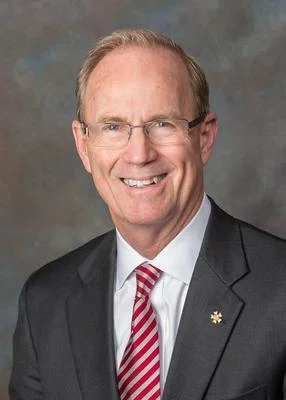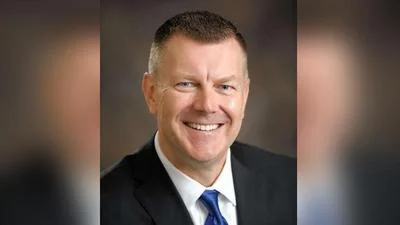During Monday’s episode of Chicago’s Morning Answer on AM 560, hosts Dan Proft and Amy Jacobson discussed whether Robert Mueller's investigation into the Trump campaign’s alleged Russian collusion had been conducted impartially.
“I hate to say it, but the standing of the FBI, the standing of Mueller’s investigative team, is this basically the Hillary fan club that’s investigating Team Trump?” Proft asked, opening the segment.
He cited the disclosure that many investigators had been past donors to or otherwise supported Clinton’s presidential campaign.
Proft, one of the hosts of Chicago’s Morning Answer, is a principal in Local Government Information Services, which owns this publication.
He then played portions of an interview with U.S. Rep. Devin Nunes (R-Calif.) conducted by Catherine Herridge of Fox News. Nunes, chair of the House Intelligence Committee, was recently cleared of accusations he leaked classified information, Proft said.
“I hate to use the word ‘corrupt’, but they’ve become so dirty,” Nunes said in the clip. “Who’s watching, who’s investigating these people? There is no one.”
As for the Mueller investigation, Nunes had this to say: “For the most part, people thought it had to do with Russian collusion, but we have no evidence of Russian collusion from the Trump campaign.”
U.S. Rep. Peter Roskam (R-Ill.) of the Sixth District then joined the hosts to discuss both the Mueller team’s bias and the prospects for passing a reconciled version of the tax reform bill.
Roskam said news about the connection some of Mueller’s investigators have with the Clinton campaign could cast doubt on any results the FBI reports in the future. He also noted some recent scandals involving fake reporting in ABC News and other media had likewise damaged their credibility.
“The reputational damage brought on themselves is really significant,” Roskam said. “There is a discipline that is happening, and the discipline is in the reputational damage the FBI is facing right now.”
Jacobson asked Roskam whether Trump should fire Mueller as special prosecutor in light of the potential bias.
“I think Byron York in the Washington Examiner has it right, that firing him would be disastrous politically,” Proft said. “Discrediting him is impeachment politics, and that’s the same thing the Left tried to do to Ken Starr as independent investigator of the Clintons.”
“That’s a terrible choice to be put in,” Roskam said of the decision to keep or dismiss Mueller. “If he fires Mueller now, it becomes a full news event. It’s not a fun situation for the president of the United States to be in, however.”
Roskam suggested that even the idea of having an independent, non-biased investigation is suspect. He drew a parallel between former NBC Today Show host Matt Lauer, who interviewed others involved in sex scandals, and then became embroiled in one of his own.
“You’ve got investigators who have been very sanctimonious when it comes to presentations on what they’re doing and it turns out their sleeves are not clean on this; that’s how it's appearing,” Roskam stated.
Jacobson mentioned rumors that U.S. Sen. Susan Collins (R-Maine) may not support the new tax bill once it has been reconciled with the House version.
“I don’t want to give a lot of traction to that because what we’re doing as members of the House and Senate to reconcile this is working through the process,” Roskam said. “The challenge now is doing the final reconciliation and bringing these two together. We’re going to get this done and it’s going to be signed into law by Christmas. And 2018 will be a good year.”
Although the House and Senate versions of the bill differ on repeal of the individual mandate of the Affordable Care Act, Roskam said the House would “wholeheartedly agree” with its repeal.
Proft mentioned another discrepancy between the two versions of the tax reform bill: the House bill retains a $10,000 property tax deduction, while the Senate version drops it.
“We’re going to prevail and have the $10,000 property tax deduction,” Roskam said. “Most people I represent say they want tax relief, but are not concerned about the equation by which tax relief comes. If you can show me my taxes are going down and the economy is getting better, then I’m for that.”






 Alerts Sign-up
Alerts Sign-up